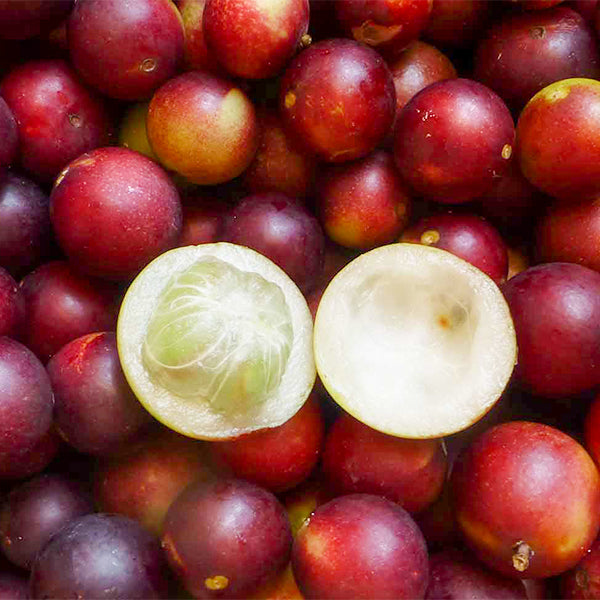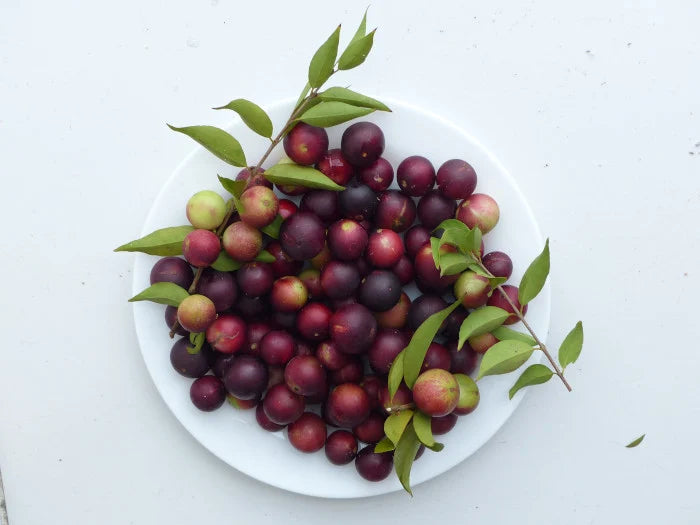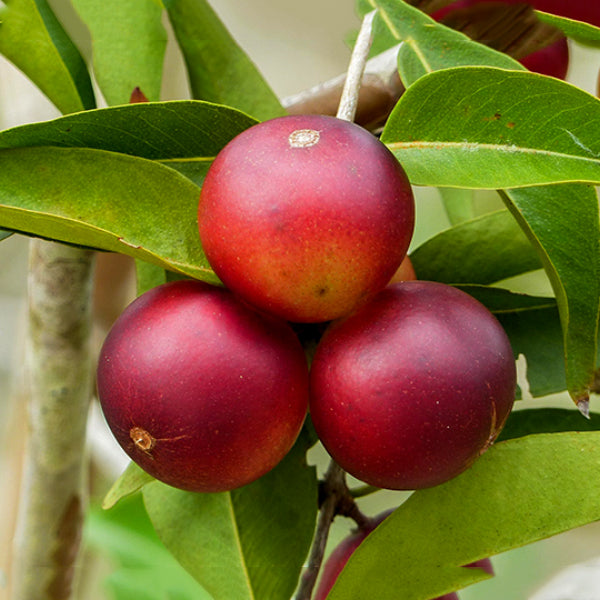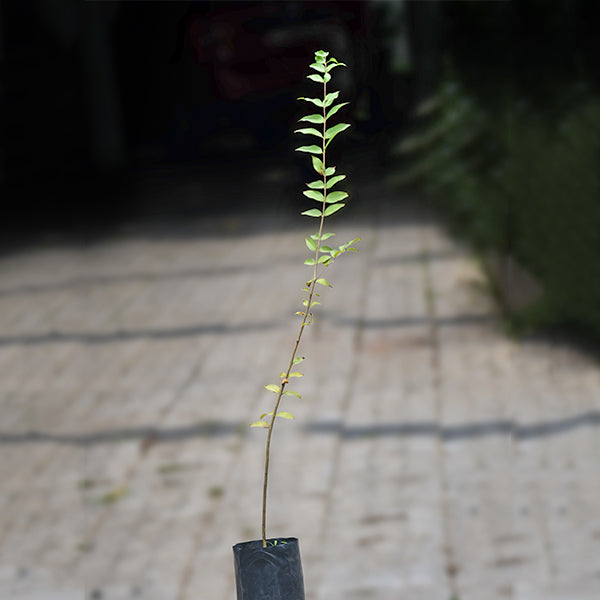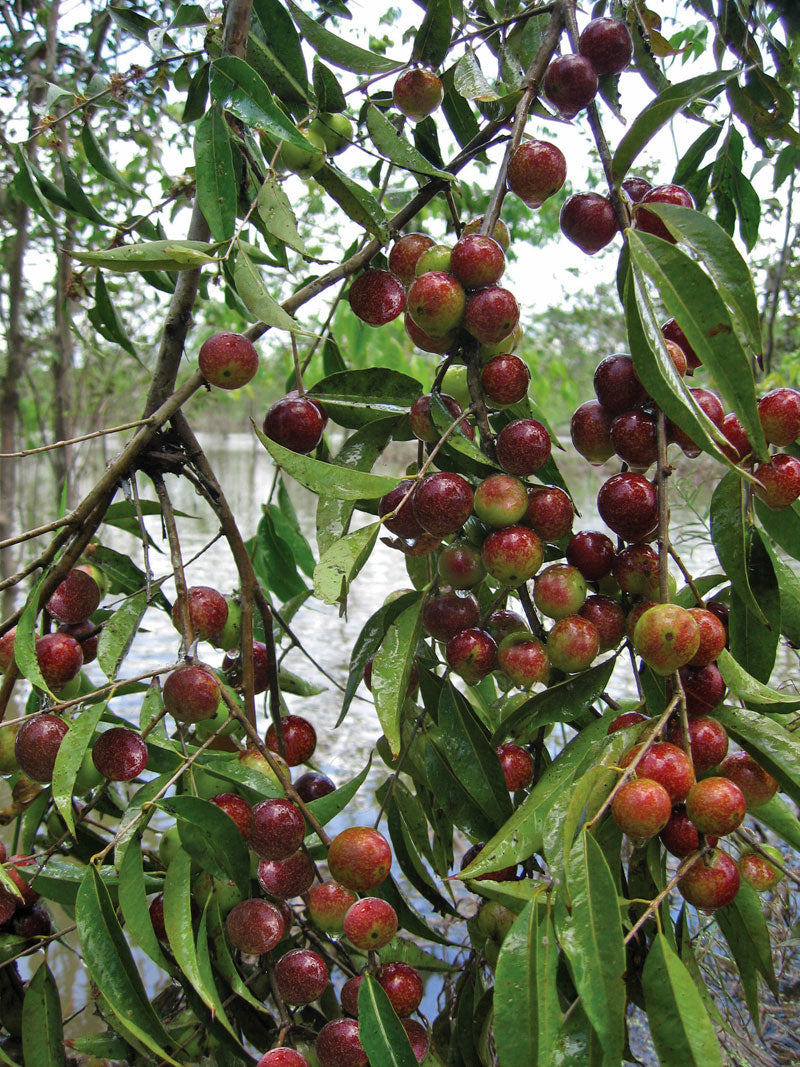veliyathgardens
Camu Camu Fruit Plants (Myrciaria Dubia)
Couldn't load pickup availability
Common Names: Cacari, Camocamo
Botanical Name: Myrciaria Dubia
General Information:
Camu-Camu is a small bushy riverside tree from the Amazon rainforest in Peru and Brazil. It can be grown in a dry environment and is also used for medicinal purposes.
Camu-Camu fruit is small, measuring 2 to 3 centimeters in diameter. It has a round, oval, or ovate shape.
The fruit's skin is smooth, taut, and semi-thin, transitioning from green when young to variegated red-green to dark red-purple when ripe.
It may become maroon or purple-black when fully ripe. The fruit can have either sweet or acidic flesh.
The flesh is soft, aqueous, and succulent, encasing 1 to 4 brown seeds. A reddish pigment in the leathery skin imparts a pink color on extracted juices. The aroma is subtle.
Nutritional Content:
Camu-Camu is rich in nutritional compounds, including fatty acids, vitamins, amino acids, and minerals. It contains vitamin C, beta-carotene, fatty acids, protein, potassium, and other chemicals.
It is used for various purposes, including viral infections, eye conditions, hardening of the arteries, chronic fatigue syndrome, and more. It is particularly known for its high vitamin C content and impressive antioxidant capacities.
Cultivation Information:
Bloom Time/Fruiting: 2-4 Years
Maintenance Required: Moderate
Share
Planting and Care
Planting and Care
Wetland season, moist soil, slightly acidic soil, frost free, keep acid soil, put mulch on the soil, organic matter and humus a few times a year, also fertiliser 3-4 times a year.
Special Feature
Special Feature
Contains many nutrients including vitamin C, beta-carotene, fatty acids, protein, and others. It is used for viral infections including the common cold, eye conditions including cataracts, hardening of the arteries , chronic fatigue syndrome, and many other conditions.
Uses/Benefits
Uses/Benefits
Camu Camu is used in ice creams and sweets and processed powder from the fruit pulp is beginning to be sold in the west as a health food in loose powder or capsule form.
